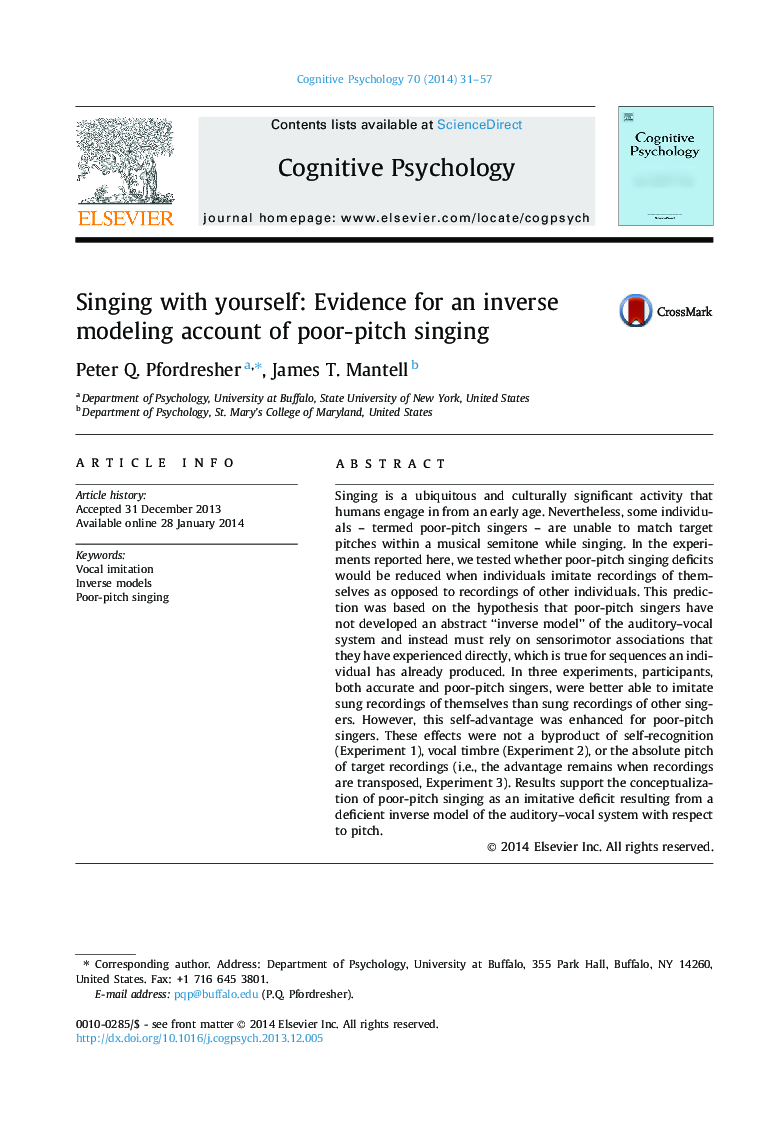| کد مقاله | کد نشریه | سال انتشار | مقاله انگلیسی | نسخه تمام متن |
|---|---|---|---|---|
| 916847 | 1473394 | 2014 | 27 صفحه PDF | دانلود رایگان |
• Poor-pitch singing may result from a poorly functioning inverse model of the auditory–vocal system.
• Deficits of poor-pitch singing may be reduced for tasks that minimize use of inverse model, such as imitating yourself.
• All singers in the present experiments imitated sung pitch more accurately when imitating recordings of themselves.
• This advantage was enhanced for poor-pitch singers.
• The self-advantage remained when self-recognition was reduced and when pitches were transposed.
Singing is a ubiquitous and culturally significant activity that humans engage in from an early age. Nevertheless, some individuals – termed poor-pitch singers – are unable to match target pitches within a musical semitone while singing. In the experiments reported here, we tested whether poor-pitch singing deficits would be reduced when individuals imitate recordings of themselves as opposed to recordings of other individuals. This prediction was based on the hypothesis that poor-pitch singers have not developed an abstract “inverse model” of the auditory–vocal system and instead must rely on sensorimotor associations that they have experienced directly, which is true for sequences an individual has already produced. In three experiments, participants, both accurate and poor-pitch singers, were better able to imitate sung recordings of themselves than sung recordings of other singers. However, this self-advantage was enhanced for poor-pitch singers. These effects were not a byproduct of self-recognition (Experiment 1), vocal timbre (Experiment 2), or the absolute pitch of target recordings (i.e., the advantage remains when recordings are transposed, Experiment 3). Results support the conceptualization of poor-pitch singing as an imitative deficit resulting from a deficient inverse model of the auditory–vocal system with respect to pitch.
Journal: Cognitive Psychology - Volume 70, May 2014, Pages 31–57
